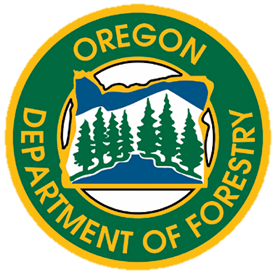SALEM, Ore. – The Oregon Department of Forestry (ODF) welcomes back 70 firefighters who’ve been assigned to the fires in Los Angeles County, California for the past two weeks. While in California, the six strike teams were split between the Palisades Fire and the Eaton Fire.
“We’re happy to help however we can when we receive the call from one of our partner states,” said Chris Cline, ODF’s Fire Protection Division Chief. “By strengthening our inter-state relationships and agreements, we can provide reciprocal support to one another by sending resources through faster channels.”
The firefighters went to California under state-to-state mutual assistance agreements, which create a reciprocal cache of resources all parties can access when needed. This is especially vital when local and national ordering systems are overtaxed. Partnerships like these are critical to quick, nimble response in today’s wildfire environment and can quickly bolster a requesting state’s capabilities.
“We call this the complete and coordinated fire system,” Cline explained. “The relationships built through deployments like these benefit Oregon when our fire season hits its peak.”
When wildfire activity is low in Oregon, like during winter, firefighters can be spared to help in places experiencing high levels of wildfire. Oregon can and has called on those same states to send firefighters and equipment when wildfires here exceed local capacity. Most recently, Oregon gratefully welcomed 21 firefighters from California to help fill middle management gaps during the 2024 fire season. Overall, Oregon brought in more than 500 people through agreements ODF has with more than 20 states and Canadian provinces and territories.
Additionally, sending ODF firefighters on out-of-state deployments helps them grow as firefighters. In addition to expanding their professional networks outside of Oregon, firefighters learn new suppression tactics and gain experience fighting fire in different environments. The skills and lessons learned brought back from these off-season deployments are then applied to better protect Oregonians, communities and our state’s natural resources.





